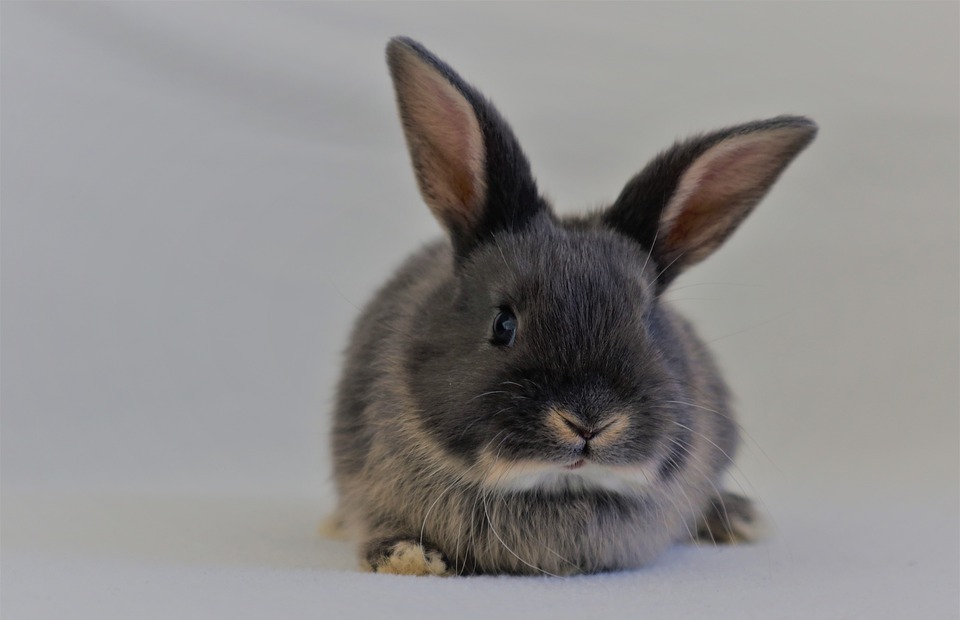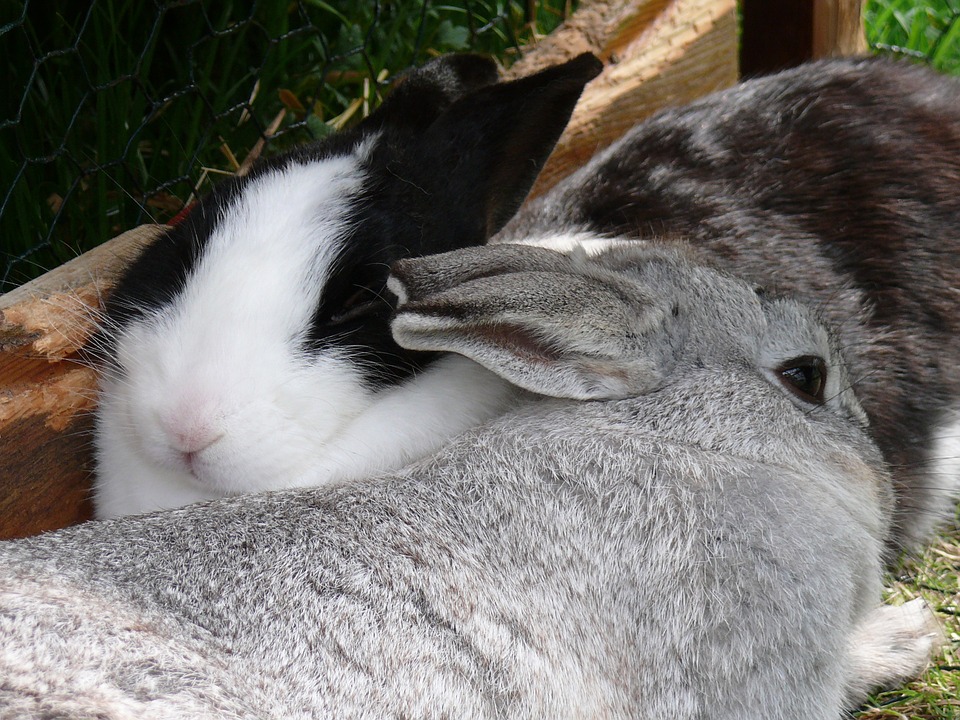Navigating the world of rabbit nutrition can be tricky, especially when it comes to vegetables. Cabbage, a common staple in human diets, often sparks questions about its suitability for our furry companions. This comprehensive guide will explore the complex relationship between rabbits and cabbage, offering insights into its nutritional value, potential risks, and how to safely incorporate it into your rabbit's diet.
Part 1: Understanding Cabbage and Its Nutritional Profile

1.1 A Glimpse into the World of Cabbage
Cabbage (Brassica oleracea) is a leafy green vegetable belonging to the cruciferous family, renowned for its versatility in culinary arts. From hearty stews to refreshing salads, cabbage finds its way into various dishes across the globe.
1.2 A Nutritional Powerhouse: Examining the Benefits
Cabbage boasts a rich profile of vitamins and minerals, making it a healthy addition to a balanced diet for humans. These nutritional benefits, however, translate differently for rabbits.
- Vitamin C: A vital antioxidant, aiding in immune function and collagen production. However, rabbits produce their own Vitamin C, so supplementation through cabbage is not crucial.
- Vitamin K: Important for blood clotting and bone health, but rabbits can obtain this from other sources.
- Vitamin A: Crucial for eyesight and immune function. Rabbits can source this from hay and other leafy greens.
- Folate: Essential for cell growth and development. Rabbits can obtain folate from hay and other fresh vegetables.
- Potassium: A vital electrolyte for muscle function and nerve impulses. Rabbits get potassium from hay and fresh greens.
- Calcium: Necessary for strong bones and teeth. While cabbage contains calcium, excessive intake can contribute to urinary stones in rabbits, making moderation crucial.
- Magnesium: Involved in various bodily processes, including muscle and nerve function. Rabbits can obtain magnesium from hay and other leafy greens.
- Iron: Important for red blood cell production. Rabbits can obtain iron from hay and other fresh vegetables.
- Dietary Fiber: Promotes digestive health by adding bulk to stool and aiding in nutrient absorption. However, cabbage's high fibre content can lead to bloating and gas in rabbits.
- Antioxidants: Offer protection against cell damage and contribute to overall well-being. However, rabbits can obtain antioxidants from other sources.
Part 2: Can Rabbits Eat Cabbage? A Delicate Balance

2.1 The Good and the Bad: A Dual Nature
While cabbage offers potential benefits, it also presents certain risks for rabbits. Understanding this delicate balance is essential for responsible pet ownership.
2.1.1 Benefits of Cabbage for Rabbits:
- Source of Vitamins and Minerals: Though rabbits can get most essential nutrients from other sources, cabbage can contribute to their overall health in moderation.
- Digestive Support: The high fibre content in cabbage can aid digestion and prevent some gut problems. However, excessive intake can lead to bloating and gas.
- Antioxidant Properties: The antioxidants in cabbage offer protection against cell damage, though this benefit can be obtained from other sources.
2.1.2 Risks Associated with Cabbage:
- Gas and Bloating: The high fermentable carbohydrates in cabbage can cause gas and bloating in rabbits, especially if consumed in large quantities.
- Calcium Content: While calcium is essential for bone health, excessive intake from cabbage can contribute to urinary stones in rabbits.
- Goitrogens: Cabbage contains goitrogens, compounds that can interfere with thyroid function. While these effects are typically minimal with moderate consumption, it's wise to be cautious, especially for rabbits with pre-existing thyroid conditions.
Part 3: Types of Cabbage and Their Suitability for Rabbits
3.1 Green Cabbage: The Most Common Choice
Green cabbage, the most widely available type, is generally considered safe for rabbits in limited quantities. However, moderation is crucial to avoid digestive issues.
3.2 Red Cabbage: A Colorful Treat with Caution
Red cabbage contains anthocyanins, powerful antioxidants responsible for its vibrant hue. However, its higher sugar content and potential for bloating make it less suitable for rabbits compared to green cabbage.
3.3 Savoy Cabbage: A Slightly Different Texture
Savoy cabbage, known for its slightly wrinkled leaves, is generally safe for rabbits, but monitoring for any digestive issues is crucial.
3.4 Napa Cabbage: A No-Go for Rabbits
Napa cabbage, with its long, loose head, contains a higher concentration of sugar compared to other varieties. This makes it an unsuitable choice for rabbits, as excess sugar can contribute to health problems.
Part 4: Introducing Cabbage to Your Rabbit: A Gradual Approach
4.1 Start Slow and Steady: A Gradual Introduction
Introducing new foods to your rabbit's diet should always be done gradually to minimize the risk of digestive upset. Begin with a small piece of cabbage, no larger than a thumbnail, and observe your rabbit closely for any adverse reactions.
4.2 Monitoring for Reactions: Observing for Signs of Trouble
Watch for signs like gas, bloating, diarrhoea, or lethargy. If you notice any of these symptoms, discontinue feeding cabbage and consult your veterinarian.
4.3 Variety is Key: A Diverse Diet
Don't rely solely on cabbage for your rabbit's diet. Offer a variety of fresh greens, hay, and pellets to ensure a balanced diet and prevent nutritional deficiencies.
Part 5: Serving Size and Frequency: Finding the Right Balance
5.1 Serving Size: Small Bites for Big Benefits
The recommended serving size of cabbage for rabbits is a small piece, no larger than a thumbnail, 1-2 times per week.
5.2 Frequency: Occasional Treats, Not Staple Food
Cabbage should be offered as a treat, not a staple food. Limit its frequency to 1-2 times per week to avoid digestive problems and ensure a balanced diet.
Part 6: Choosing the Right Cabbage: Quality Matters
6.1 Freshness and Quality: A Vital Selection
Select fresh, crisp cabbage with no signs of wilting or discolouration. Avoid cabbage that has been damaged or bruised, as this can indicate spoilage.
6.2 Washing and Preparation: Ensuring Safety
Thoroughly wash the cabbage under running water to remove any dirt, pesticides, or residues. Remove any damaged or wilted leaves before feeding to prevent potential contamination.
Part 7: Alternatives to Cabbage: A Wide Array of Choices
7.1 Other Leafy Greens: A Healthy Variety
There are plenty of other leafy greens that are safe and healthy for rabbits, offering a diverse source of nutrients:
- Parsley: A good source of Vitamin C, Vitamin K, and antioxidants.
- Cilantro: Rich in Vitamin K, Vitamin C, and antioxidants.
- Spinach: A good source of Vitamin A, Vitamin C, and iron.
- Kale: High in Vitamin K, Vitamin C, and Vitamin A.
- Endive: A good source of Vitamin A, Vitamin C, and potassium.
7.2 Hay and Pellets: The Cornerstones of a Rabbit Diet
Hay and pellets should form the majority of your rabbit's diet. These provide essential nutrients, fibre, and contribute to dental health, which is crucial for rabbits.
Part 8: FAQs: Addressing Common Concerns
8.1 Is it safe to give my rabbit raw cabbage?
Yes, it is safe to give your rabbit raw cabbage, but it's important to wash it thoroughly and remove any damaged leaves.
8.2 Can I give my rabbit cooked cabbage?
Cooked cabbage is not recommended for rabbits. Cooking can destroy nutrients and make the vegetable more difficult to digest.
8.3 Is red cabbage safe for rabbits?
Red cabbage is not recommended for rabbits due to its higher sugar content and potential for digestive upset.
8.4 How often should I give my rabbit cabbage?
Limit cabbage to 1-2 times per week as a treat, to avoid digestive problems.
8.5 What should I do if my rabbit shows signs of digestive upset after eating cabbage?
Discontinue feeding cabbage and consult your veterinarian. They can help determine the cause and recommend a course of action.
8.6 Can baby rabbits eat cabbage?
Baby rabbits should not eat cabbage until they are at least 12 weeks old. Their digestive systems are still developing and may not be able to handle the fermentable carbohydrates in cabbage.
8.7 Is it okay to give my rabbit cabbage every day?
No, cabbage should not be given daily. It should be offered as a treat, 1-2 times per week.
8.8 Can I give my rabbit cabbage leaves?
Yes, you can give your rabbit cabbage leaves, but be sure to wash them thoroughly and remove any damaged leaves.
8.9 Is cabbage core safe for rabbits?
It is generally not recommended to feed rabbits the core of cabbage. It can be difficult to digest and may cause digestive problems.
8.10 Are cabbage stalks safe for rabbits?
Cabbage stalks can be tough and difficult for rabbits to digest. It's best to avoid feeding them.
8.11 What if my rabbit doesn't like cabbage?
Don't force your rabbit to eat cabbage if they don't like it. There are many other healthy vegetables that they may enjoy.
Conclusion:
Cabbage can be a healthy treat for rabbits in moderation, offering valuable vitamins and minerals. However, its high fermentable carbohydrate content, potential for bloating and gas, and calcium content require careful consideration. By introducing cabbage gradually, monitoring for reactions, and offering a varied diet, you can ensure your rabbit enjoys the benefits of this leafy green while avoiding potential risks. Remember, always consult your veterinarian for personalized advice regarding your rabbit's diet and overall health.
Everyone is watching
-

Do Rabbits Lay Eggs? (The Surprising Truth)
OTHER TYPES OF PETSThis article will unravel the common misconception that rabbits lay eggs, exploring the fascinating world of r...
-

Can Rabbits Eat Grapes? A Guide to Safe Rabbit Treats
OTHER TYPES OF PETSThis comprehensive guide will explore the safety and suitability of grapes for rabbits, providing detailed inf...
-

What's a Group of Rabbits Called? (A Comprehensive Guide)
OTHER TYPES OF PETSThis article delves into the fascinating world of rabbits, exploring the various terms used to describe a grou...
-

Predators That Hunt Rabbits: A Guide to Natural Enemies
OTHER TYPES OF PETSI've always been fascinated by the circle of life, that delicate dance between predator and prey. Growing up ...
-

Are Rabbits Nocturnal Animals?
OTHER TYPES OF PETSThe question of whether rabbits are nocturnal animals is a fascinating one, with a surprisingly complex answer...
